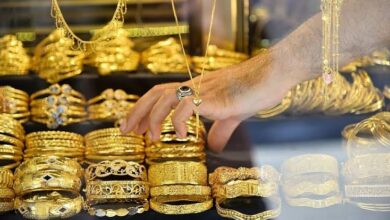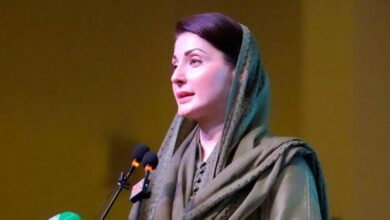Ethical Finance is Sustainable Finance – Startup Pakistan

Islamic banks offer competitive, yet inclusive financial products that align with Islamic law, particularly avoiding Riba (interests), Gharar (excessive uncertainty), and Haram (forbidden) activities. Savings accounts business, home financing, investment funds, and all banking products are structured to comply with Shariah principles while remaining competitive in the market. For instance, a Murabaha contract can be used for Auto financing, where the bank buys the Car and sells it to the customer at a profit, allowing for Car ownership without interest.
Faysal Bank along with other banks like Meezan, Al Barakah, Bank Islami, Dubai Islamic, has developed a wide range of Shariah-compliant solutions tailored to meet diverse customer needs, including personal and corporate banking services.
Islamic Banks are Growing and Competing Globally
With the Islamic finance industry growing at 10-15% annually, and global assets surpassing trillions of dollars, Islamic banks have come far from being just niche players. Financial hubs like Dubai, Kuala Lumpur, and London have become centers for Islamic finance, and conventional banks like HSBC and Standard Chartered now offer Islamic banking windows.
Islamic finance products such as Sukuk (Islamic bonds) have gained international recognition, with countries and corporations issuing Sukuk to finance infrastructure and development projects. Sukuk provides investors with returns linked to real assets, ensuring stability and minimizing speculative risks, making them a strong alternative to traditional bonds.
A conventional credit card charges interest (riba) on outstanding balances and in contrast, an Islamic credit card operates under Shariah law, prohibiting interest. The Noor Card by Faysal Bank, which is a Shariah-compliant card, offers a range of financial solutions adhering to Islamic principles. The Faysal Islami Noor Card is based on the Islamic principle of Tawarruq, where a party buys a commodity on deferred payment and then sells it for cash to gain liquidity. When applying for the card, the customer enters into a Musawamah agreement with the bank to purchase assets, such as Islamic Mutual Fund units, on deferred payment. Once the customer owns the assets, they instruct an agent to sell them on their behalf, and the proceeds are deposited into the customer’s account.
Card transactions are debited from the card account, and payments are made by the due date to restore the card limit. If only the minimum payment or less than the full amount is paid, the bank will charge profit as per the Musawamah agreement. It also includes Takaful (Islamic insurance) coverage for added security and peace of mind. With its balance transfer facility and secure online shopping, the Noor Card combines ethical banking with modern convenience, making it ideal for individuals seeking Islamic financial solutions.
Addressing the Misconception of Profitability
There is a common misconception that Islamic banks are less profitable because they dont charge interest. However, this overlooks the sophisticated profit-sharing mechanisms that Islamic banks employ. Through models like Musharaka and Mudaraba, Islamic banks engage in risk-sharing partnerships with their clients, ensuring that both parties benefit from successful investments.
This approach fosters long-term relationships between banks and customers, fundamentally different from conventional banking. Instead of simply lending money and profiting from interest, Islamic banks become invested in their clients’ success. The relationship evolves from a loan to a mutually beneficial partnership, aligning the bank’s interests with those of its customers.
This model not only adheres to Islamic principles but can also lead to more stable and ethical financial practices. It encourages banks to carefully assess and support viable projects, potentially reducing the risk of toxic loans and promoting economic growth. Moreover, by sharing both profits and losses, Islamic banks may encourage more responsible financial behavior from their clients.
Resilience Through Stability
Gharar or unnatural speculation is forbidden in Islamic Banking. Islamic banks therefore have shown greater resilience during financial crises. They avoid high-risk, speculative investments, and emphasize asset-backed transactions. And in doing so Islamic banks tend to weather economic downturns more effectively than their conventional counterparts. The 2008 global financial crisis, for example, had a milder impact on Islamic banks, demonstrating the stability of Shariah-compliant financial models.
Islamic banking’s emphasis on ethical and socially responsible investing appeals to a wide range of consumers—not just Muslims. Many non-Muslim customers are drawn to the transparency and fairness inherent in Islamic financial products. This is especially important in an age where ethical considerations are gaining importance across industries.
Conventional banks prioritize profit over the purpose of investment and hence may engage in questionable investments. Islamic banks work to strengthen communities and encourage personal and social welfare; by financially starving out impermissible activities hence they adhere to strict guidelines that promote fairness and social responsibility. These ethical considerations resonate with socially conscious investors looking for alternatives to traditional finance.
Islamic Banking Offers Competitive, Ethical, and Sustainable Solutions
The rise and expansion of Islamic banking is in itself proof that finally an alternative system is gearing up to offer a more financially inclusive and welfare ordained financial system. By adhering to principles of fairness, transparency, and risk-sharing, Islamic banking provides not only competitive products but also a more ethical and sustainable approach to finance. And as the global financial system continues to evolve, the demand for Shariah-compliant financial products is expected to grow, offering increasingly viable, competitive, and responsible options.
Source link



